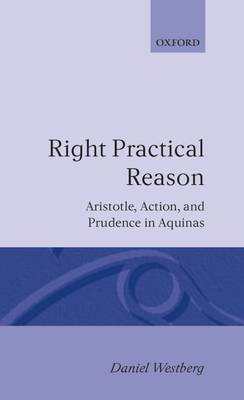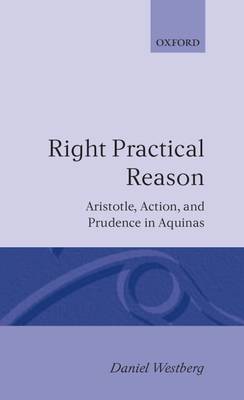
- Afhalen na 1 uur in een winkel met voorraad
- Gratis thuislevering in België vanaf € 30
- Ruim aanbod met 7 miljoen producten
- Afhalen na 1 uur in een winkel met voorraad
- Gratis thuislevering in België vanaf € 30
- Ruim aanbod met 7 miljoen producten
Zoeken
€ 306,45
+ 612 punten
Omschrijving
This book is a study of the role of intellect in human action as described by Thomas Aquinas. One of its primary aims is to compare the interpretation of Aristotle by Aquinas with the lines of interpretation offered in contemporary Aristotelian scholarship. The book seeks to clarify the problems involved in the appropriation of Aristotle's theory by a Christian theologian, including such topics as the practical syllogism and the problems of akrasia. Westberg argues that Aquinas was much closer to Aristotle than is often recognized, and he puts forward important new interpretations of the relation of intellect and will in the stages of intention, deliberation, decision, and execution. In the concluding section of the book, he shows how this new interpretation yields fruitful insights on a range of theological topics, including sin, law, love, and the moral virtues.
Specificaties
Betrokkenen
- Auteur(s):
- Uitgeverij:
Inhoud
- Aantal bladzijden:
- 296
- Taal:
- Engels
- Reeks:
Eigenschappen
- Productcode (EAN):
- 9780198267317
- Verschijningsdatum:
- 8/09/1994
- Uitvoering:
- Hardcover
- Formaat:
- Genaaid
- Afmetingen:
- 149 mm x 224 mm
- Gewicht:
- 535 g

Alleen bij Standaard Boekhandel
+ 612 punten op je klantenkaart van Standaard Boekhandel
Beoordelingen
We publiceren alleen reviews die voldoen aan de voorwaarden voor reviews. Bekijk onze voorwaarden voor reviews.











